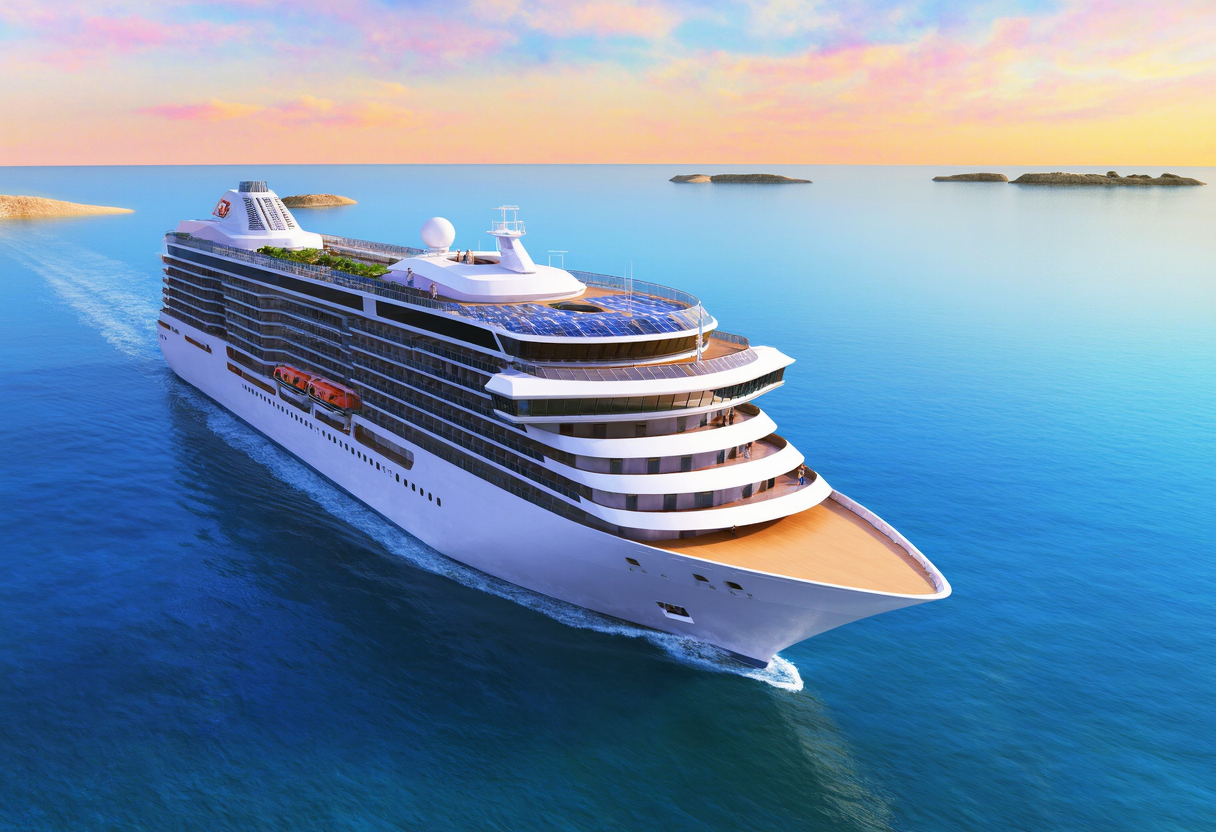Cruise Tourism Trends: Navigating the New Era of Ocean Voyages
Cruise Tourism is entering an era of remarkable transformation. As travelers seek unique experiences at sea, the cruise industry is adapting with innovative offerings, green technologies, and diverse itineraries. This article delves into today's key trends, including personalized services and the increase in sustainable practices, reshaping the future of cruise tourism.
The Evolution of Cruise Tourism Trends
Cruise Tourism has emerged as one of the most dynamic sectors of the tourism industry, adapting to the ever-changing preferences of travelers. Today's cruise passengers are seeking unique and immersive experiences that combine adventure with sustainability. The industry is responding with innovative cruise packages that focus on exploration, cultural engagement, and environmental awareness. For example, many cruise lines now offer themed itineraries, such as culinary cruises or themed wellness journeys that cater to niche markets. This diversification has broadened the appeal of Cruise Tourism and expanded its market reach significantly, inviting a new generation to explore the oceans in style. Thus, the evolution of consumer preferences is driving the cruise sector to rethink traditional approaches and explore novel experiences that attract modern travelers.
Personalized Experiences in Cruise Tourism
The transformation of Cruise Tourism has given rise to the demand for personalized travel experiences. Gone are the days of one-size-fits-all itineraries; today’s travelers desire unique and tailor-made journeys that reflect their individual interests and preferences. Cruise lines are responding by offering customizable packages, enabling passengers to curate their onboard activities and excursions. For instance, some cruise companies provide options for guests to select specific dining venues, entertainment choices, and shore excursions based on their preferences. This level of personalization enhances guest satisfaction and increases the likelihood of return visits, establishing customer loyalty to cruise brands. The significance of building strong relationships with travelers underscores the importance of evolving industry practices in Cruise Tourism to meet modern consumer demands.
Eco-Friendly Initiatives and Sustainability
Sustainability has become a primary focus within the realm of Cruise Tourism, as companies strive to reduce their environmental impact. The movement towards greener solutions has gained traction among cruise lines, prompting them to invest in eco-friendly technologies. Innovations such as energy-efficient ships, water purification systems, and advanced waste management practices are vital in addressing environmental challenges. Additionally, many cruise companies have implemented stringent sustainability policies, including minimizing single-use plastics and promoting local sourcing in their onboard dining options. By championing sustainable practices, Cruise Tourism is not only appealing to eco-conscious consumers but also setting an example for responsible travel. The shift towards sustainability reflects a broader cultural movement, underscoring the urgency for the entire tourism industry to adopt greener methods.
Adventurous Itineraries in Cruise Tourism
As travelers increasingly seek adventure, Cruise Tourism is adapting by curating daring and exotic itineraries. Expeditions to uncharted waters and remote destinations are gaining popularity, appealing to thrill-seekers who crave unique and unforgettable experiences. The demand for adventure-oriented cruise vacations is evident in the rise of expedition cruises, which often feature specialized vessel designs and onboard experts to guide passengers through adventurous excursions. From natural wonders to cultural immersion, these cruises provide a range of engaging activities, from hiking and kayaking to wildlife viewing. This emphasis on adventure broadens the appeal of Cruise Tourism and attracts diverse demographics looking for memorable excursions that go beyond traditional sightseeing.
The Impact of Digital Transformation on Cruise Tourism
The digital transformation of the cruise industry is redefining customer engagement and operational efficiency. With advanced online booking systems, passengers can effortlessly plan their journeys, from initial booking to real-time itinerary adjustments. The incorporation of technology, such as virtual reality and augmented reality experiences on board, adds a new dimension to the cruise experience, immersing passengers in their travel adventures before they even set sail. Furthermore, cruise lines are harnessing big data to better understand traveler preferences, allowing for targeted marketing and service enhancements. This reliance on technology highlights a shift towards a customer-centric model that prioritizes personalization and engagement within Cruise Tourism, reinforcing its relevance and appeal in today's marketplace.
Conclusion: The Future Ahead for Cruise Tourism
In summary, the Cruise Tourism industry is experiencing significant shifts that reflect broader trends in travel preferences, sustainability, and technological advancements. As more travelers pursue unique and meaningful adventures at sea, the industry must continue to innovate and adapt. The focus on personalization and eco-friendliness positions Cruise Tourism to thrive in the evolving travel landscape. Continued investment in technology and responsible practices will further enhance the passenger experience, paving the way for a bright future filled with opportunity for both travelers and the cruise industry alike.
